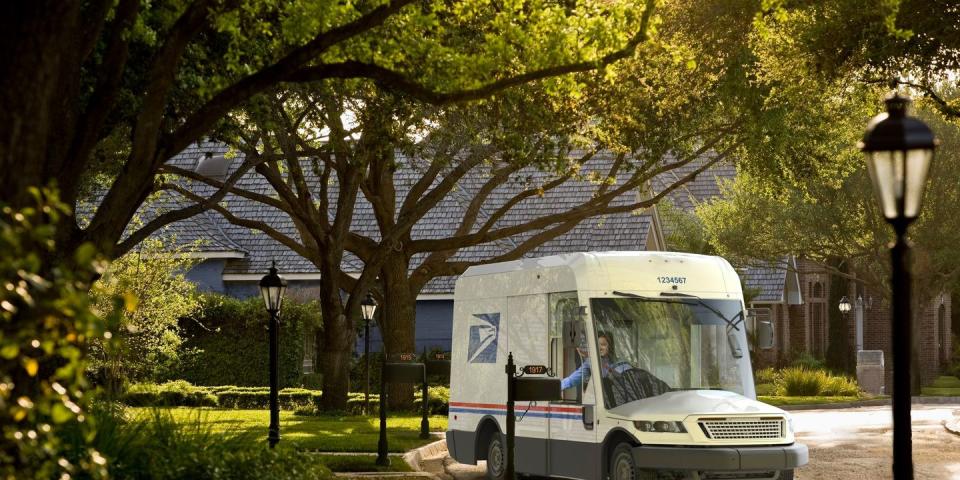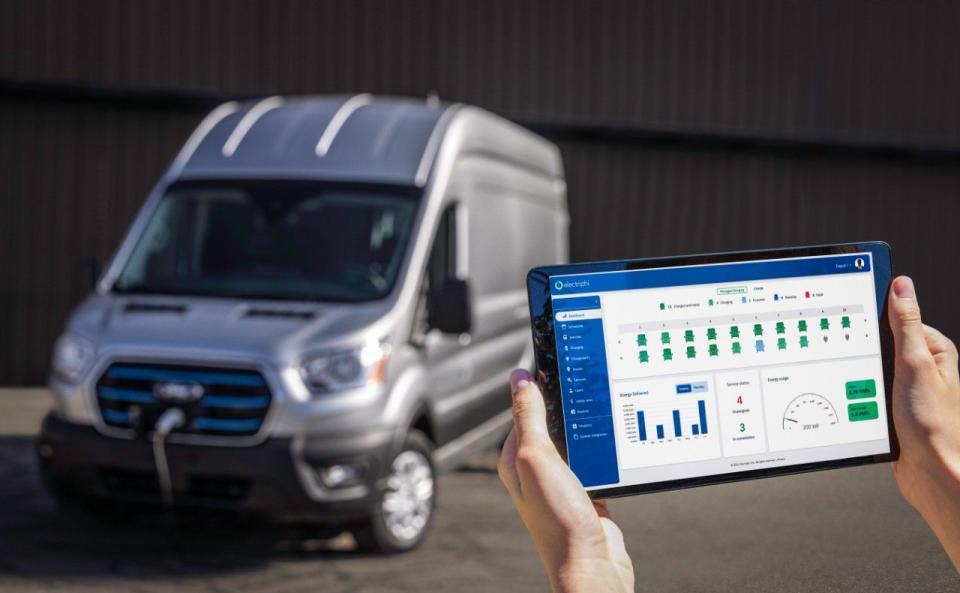New USPS Trucks to Be Built in South Carolina with Ford Engines and Transmissions

Ford has announced it will provide both traditional gasoline-powered and battery-electric powertrains for the new generation of U.S. Postal Service vehicles, known as the Next Generation Delivery Vehicle or NGDV.
Oshkosh says it will build the new vehicles in Spartanburg, South Carolina.
Defense contractor Oshkosh won the $6 billion contract to build the vehicles in February. While the contract said the USPS was interested in adding all-electric models to its fleet, it did not specify how many it would buy, and Oshkosh has admitted it is not exactly a leader in electric powertrains.
The building blocks of the U.S. Postal Service's upcoming Next Generation Delivery Vehicle (NGDV) are finally falling into place. While the company that will deliver the new delivery vans to the USPS is defense contractor Oshkosh, Ford will be the one actually building the engines, transmissions, and other components for the NGDV. Separately, Oshkosh announced this week that it will assemble the vehicles at a new, dedicated facility in Spartanburg, South Carolina.
Oshkosh was the winner of a half-decade-long bidding process to get the postal service some new trucks. One of the other two companies trying to win the bid was Workhorse, which recently filed a lawsuit over the contract process. Workhorse, an electric-vehicle startup, has questioned how serious the USPS is about converting its fleet to electric vehicles, given that Postmaster General Louis DeJoy only committed to making 10 percent of the new fleet electric, at least at first.
There has been talk about replacing the powertrains in the gas-powered NGDVs over time, but for now, the bulk of the initial orders will run on fossil fuels. According to Reuters, Ford said it could supply powertrain components for either gas or electric models. Neither Ford nor Oshkosh have released any financial details of their deal, but the USPS contract was reportedly worth $6 billion.
The NGDV represents the first major fleet change for the USPS in about three decades. The current mail delivery vehicles, known as Grumman Long Life Vehicles, were built between 1987 and 1994 and were only meant to be on the road for a maximum of 24 years. The new contract says the USPS will purchase somewhere between 50,000 and 165,000 NGDVs over 10 years.
Oshkosh said in a press release that it will be able to make any number of the new vehicles electric, but the contractor admitted to the Securities and Exchange Commission in November that it does not have much experience building electric-powered vehicles and that it may have to spend more money on research and development to actually build and deliver the plug-in NGDVs.
Oshkosh said it will hire over 1000 people for the Spartanburg facility, not counting related supply-chain jobs that the new plant will require. The facility will repurpose what Oshkosh is calling an "expansive warehouse facility," and NGDV production should start in the summer of 2023.

In mid-June, Ford announced it had acquired the EV charging managing company Electriphi as a way to simplify the charging process for its commercial fleet customers. FordPro, Ford’s new commercial vehicle business, said in a statement that it estimates depot charging, which is used by EV fleets, will grow to include more than 600,000 full-size trucks and vans by 2030.
You Might Also Like

 Yahoo Finance
Yahoo Finance 